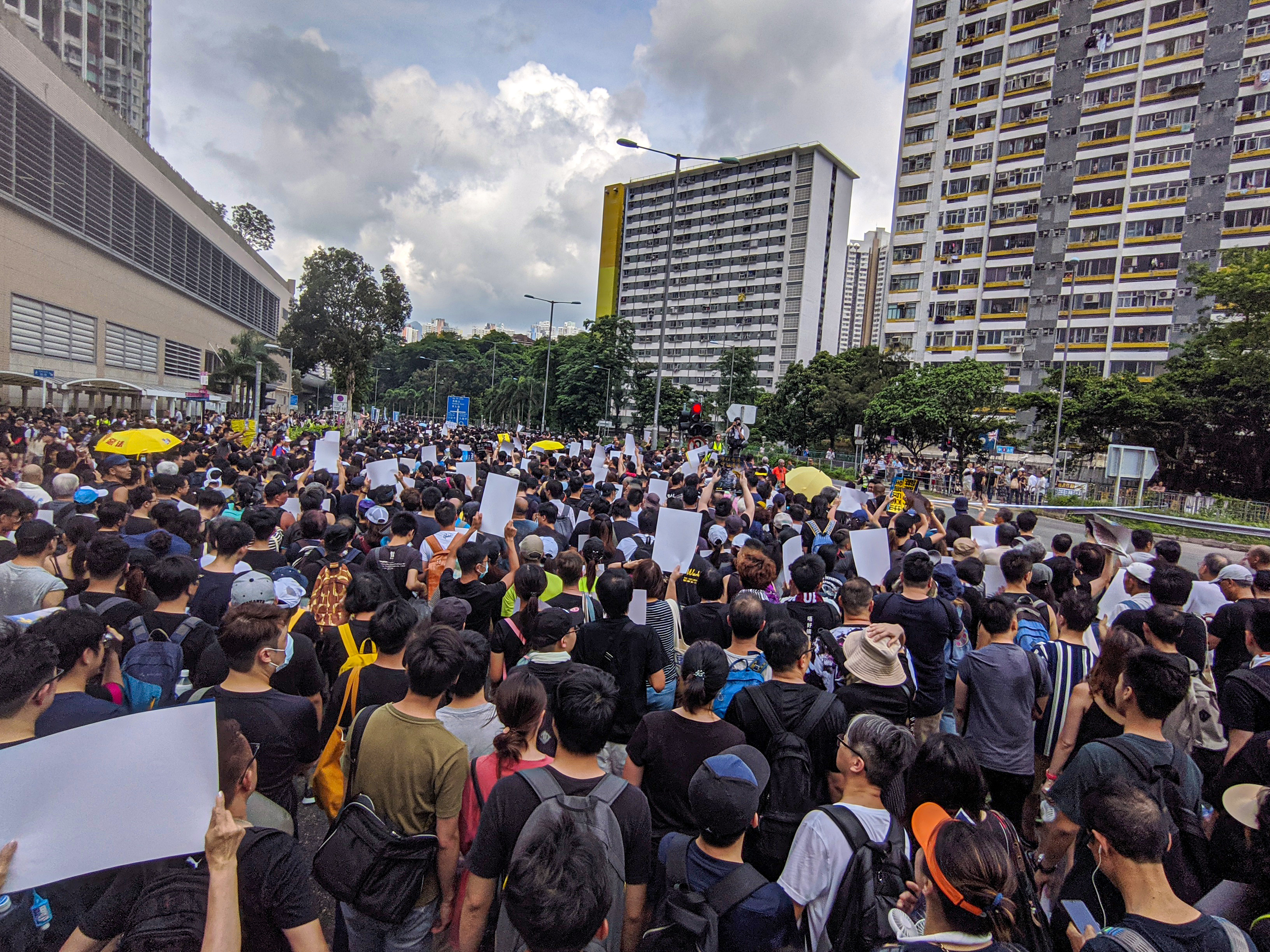Political Strikes in Hong Kong: Not the First, and Probably Not the Last
by Fuk Ying Tse
19 August 2019

For almost three months now, Hong Kong has seen mass protests against the extradition law amendment bill (ELAB) – a bill that would allow the Hong Kong government to extradite fugitives to China, threatening to undermine the autonomy of the region. Along with the fury at how the Hong Kong government has responded to public opposition to the bill, these protests have been sustained by escalating police violence towards protesters and local residents.
With the movement evolving on a daily basis and military intervention from the Chinese government a growing threat, how this crisis might end remains unclear. What’s certain is that the series of protests is unprecedented in many ways – in its scale, its duration, the scope of its participants, its forms of organisation (largely online and ‘leaderless’), and its geographical coverage (extending to residential neighbourhoods that have not historically been protest zones). Particularly notable is the general strike that was called on 5 August – the first political strike in Hong Kong for over half of a century.
After weeks of demonstrations directly targeting the government and police force, the general strike was an escalation. Two main types of confrontation have been observed among the protesters: while some favour militant tactics against the violence, the majority prefer a more peaceful approach to raising their demands. With more protesters being brutally injured in direct confrontation with the police, the general strike was an alternative means for those not wanting direct confrontation to suspend the social and economic order of the region. According to news reports the strike covered a range of sectors with a total of 300,000 workers, and paralysed key economic activity in Hong Kong. More than 200 flights were cancelled or rescheduled because a third of air traffic controllers allegedly went on strike, and some major underground lines were also suspended for half the day. Assemblies for people who refused to work were also held in seven different locations, instead of the usual areas which traditionally host protests, and attracted massive crowds.
While significant, political strikes are not unprecedented for Hong Kong workers. Massive political strikes have happened before, though not since the Canton-Hong Kong strike in 1925-26 and the general strike called by pro-Communist leftists during the 1967 riot against imperialism and colonialism during the British rule. The Basic Law, the ‘mini constitution’ for the Hong Kong Special Administrative Region after 1997, provides the legal basis for the freedom to strike for workers. However, weak employment rights protections for individual workers make collective industrial action rare (if the infamous Chinese work ethic is not to be blamed), and political strikes even rarer. Retaliation from employers against workers’ industrial action, be it represented by a union or not, is commonplace. Civil servants, meanwhile, are also bound by a code of conduct that includes political neutrality, which prevents them from participating in political activities such as strikes.
Weak organised labour is another reason why strikes are rare. In 2017, union density in Hong Kong stood at 25.02% – slightly higher than the UK figure at the time (23.5%). Nonetheless, the Hong Kong Federation of Trade Unions (FTU), the largest trade union federation that covers the most sectors and accounts for over half of total union membership, has long been identified as a ‘yellow union’ with close ties with pro-Beijing and pro-business interests. Independent union movements, represented by the Hong Kong Confederation of Trade Unions (CTU), started to develop in the 1980s, but voluntary union recognition of employers and the absence of collective bargaining rights provides little room for independent unions to challenge employers through collective action, bar sporadic sectoral strikes. Since the anti-ELAB protests began, established unions have played only a limited role in mobilisations. The CTU, which has long been allied with the democratic movement, chose not to take a leadership role in the ‘leaderless’ movement in order to avoid a backlash from protesters. It called for a strike on 20 June, but this mobilisation was limited to members of its own affiliates.
But although the political action on 5 August was unprecedented, it technically wasn’t a strike. Most of the workers involved withdrew their labour in ways aimed at protecting themselves from employer retaliation, such as by taking annual leave. Many employers were also sympathetic to the protests, and either decided to suspend operations for the day so employees did not have to go to work, or gave tacit approval for workers’ absence.
With the government refusing to concede and protesters facing increasingly harsh suppression, further industrial action seems likely. On 14 August, 700 underground drivers signed a petition demanding the police stop using chemical weapons indiscriminately against passengers inside underground stations, as well as calling on their employer to prioritise the safety of drivers and passengers. With no response from management so far, this week driver representatives are urging fellow drivers to withdraw from duty by taking leave and refusing to drive. While these actions aren’t technically strikes at a workplace level, the leverage workers are creating by withdrawing their labour – along with their ability to self-organise – is certainly growing.
Fuk Ying Tse is a PhD student in industrial relations and Chinese labour studies.